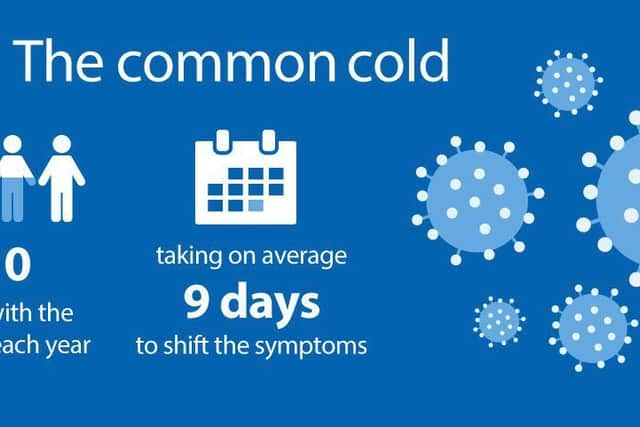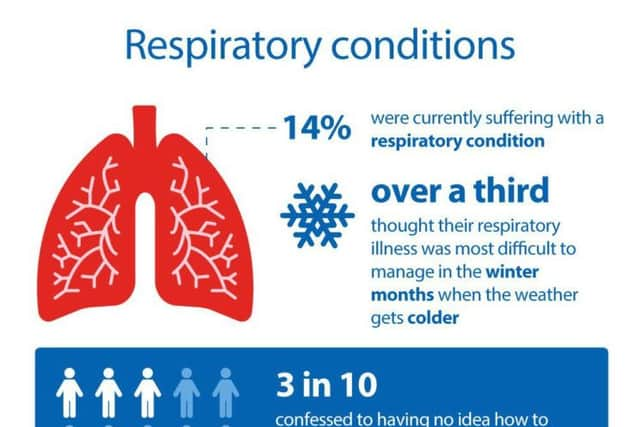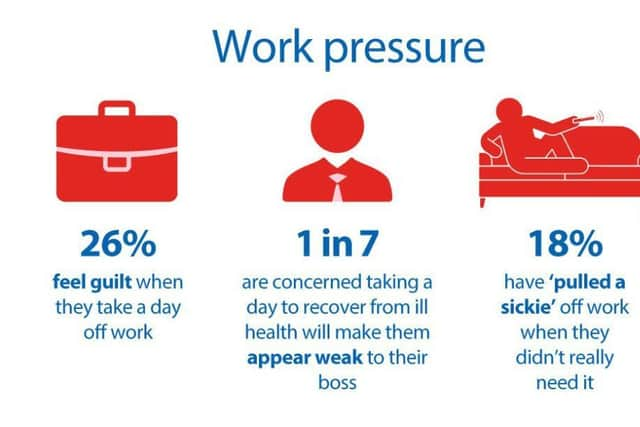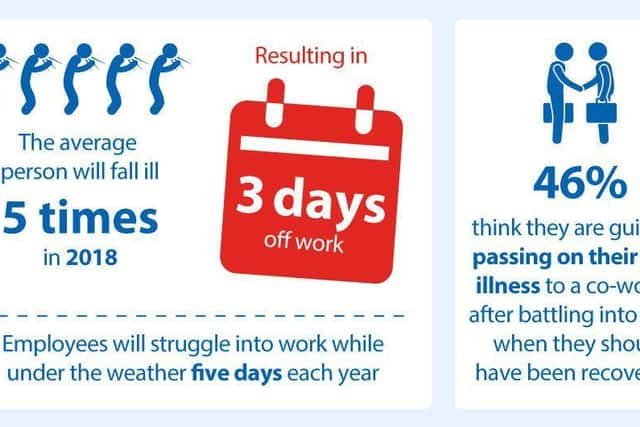VIDEO: More than half of workers believe they have caught a bug from a poorly colleague
and live on Freeview channel 276
Research revealed the true extent to which staff who arrive at work coughing and spluttering pass on their gems and diseases to those who sit nearby.
According to the study the average ‘martyr’ will struggle into work while ill five days a year, putting their co-workers at risk.
Advertisement
Hide AdAdvertisement
Hide AdRemarkably, one in two workers believe they have passed on an illness after battling into the office when they should have been recovering at home.


Dr Penny Woods, Chief Executive of the British Lung Foundation, which commissioned the study, said: “People definitely shouldn’t feel guilty about being ill.
‘’Cold weather can have a big impact on people living with a lung condition, who may need additional days off work.
“They’re more likely to get a cold or flu, which can make symptoms worse, and lead to a long recovery period. We’ve all suffered a cold that we struggle to shrug off.
Advertisement
Hide AdAdvertisement
Hide Ad‘’Sometimes a persistent cough, accompanied with breathlessness, could be a sign of something more serious.


“Millions of people are living with undiagnosed lung disease, so if a cough is troubling you get it checked out.”
The study also found workers take an average of three sick days each year.
Twenty six per cent feel guilt when they take a day off work, leaving their colleagues to pick up their slack, and one in seven are concerned taking a day to recover from ill health will make them appear weak to their boss.
Advertisement
Hide AdAdvertisement
Hide AdJanuary emerged as the most common time to suffer from a cough, with one in six Brits spluttering their way through the month.


The common cold is likely to strike seven in 10 each year.
Worse still, once the cold has taken hold, it takes an average of nine days to shift the symptoms and to start feeling normal again.
Only seven per cent of Brits would think to visit the hospital if they were finding a cough or cold difficult to shift, but three in five would consider booking an appointment with their GP if they still hadn’t recovered in over a month.
Of the 2,000 workers surveyed, 14 per cent are currently suffering with a respiratory condition of some description.


Advertisement
Hide AdAdvertisement
Hide AdOf those, over a third thought their respiratory illness was most difficult to manage in the winter months when the weather gets colder.
Less than one in five of the workers surveyed felt certain they knew how to maintain their respiratory health in the winter months, and three in 10 confessed to having no idea.
Fifty four per cent believe the changing seasons, particularly from a warm season to a cold season, is most likely to cause them to get sick.
Stress is a major consideration when it comes to ill health, the study conducted by OnePoll revealed, with 42 per cent of workers attributing feeling under the weather to times of stress.
Advertisement
Hide AdAdvertisement
Hide AdTwo in five think a lack of sleep increases their chances of catching the lurg, and 16 per cent blame coming into physical contact with ill strangers.
Dr Woods, added: “Respiratory conditions are harder to manage during winter, so we all need to know how to maintain good lung health at this time.


“There is an 80 per cent rise in respiratory admissions to emergency departments during the cold snap. This is clearly playing a major part in pushing our A&E services over the edge.
“We must plan for this predictable increase in hospital attendance throughout the year. This will enable our services to cope better during the coldest months and reduce needless attendances and admissions.”